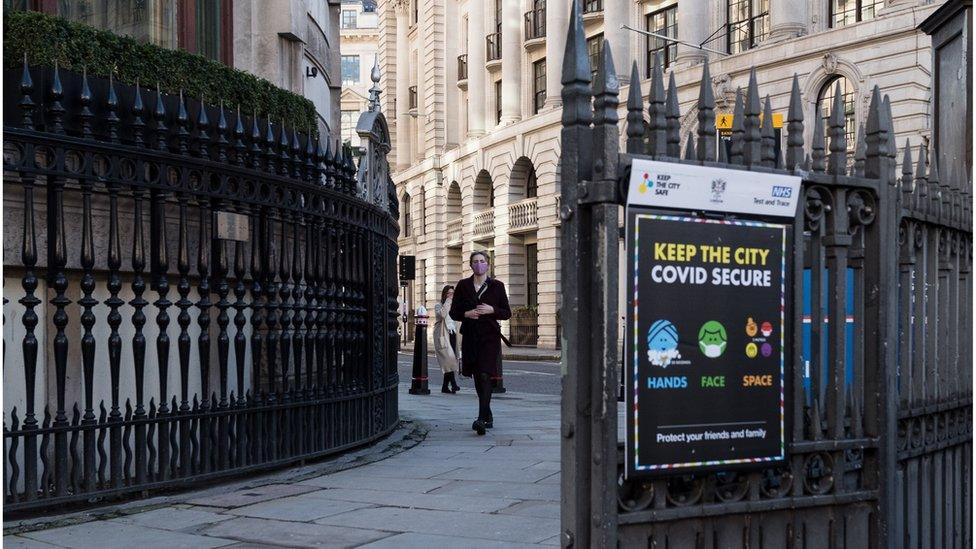Covid: Four can meet for exercise in Wales from Saturday
- Published
Case rates and positivity rates are two of the key factors on the road out of lockdown
Four people from a maximum of two households in Wales will be able to meet outdoors for exercise from Saturday.
It is one in a small list of changes announced to lockdown restrictions.
Stay at home travel rules are staying in place but First Minister Mark Drakeford said they could be eased in three weeks' time.
As part of the plans primary school children aged eight and over may be able to return to school from 15 March.
The first minister's review set out how the rules could be eased further if case rates - currently the lowest since September - continue to improve.
Some non-essential shops and hairdressers could also reopen in March, but pubs, restaurants, cafes and gyms are unlikely to be allowed to resume trading soon.
The government said tight restrictions were still needed now to ensure a safe return to school, with the youngest pupils returning next week.
But the Conservatives said it was regrettable more opportunities were not given for businesses to reopen.
Plaid Cymru said a "stay local" message was needed for as long as necessary.
New exercise rules 'not for socialising'
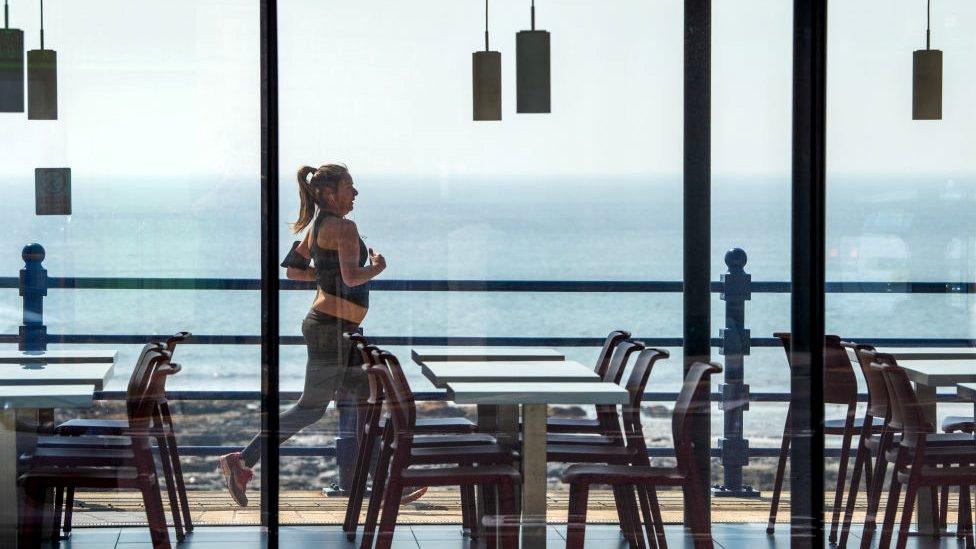
Four people will be able to exercise together outside
Mr Drakeford told a press conference the new exercise rules did not mean it was "permissible for people to drive somewhere to exercise".
"It does mean exercise, not socialising," he said.
The rules do not apply in private gardens, where households are still banned from meeting up, barring support bubbles.
Mark Drakeford said lockdown restrictions could lift if case rates fall
From 1 March licensed wedding venues will be able to reopen to hold wedding and civil partnership ceremonies, in line with current rules for register offices.
More elite athletes will be able to return to training, although it is not clear from when, while more visits to care homes are also being considered.
Talks are taking place about reopening tourism in time for Easter, with bed and breakfasts and hotels with room service likely to be the priority.
When will schools in Wales reopen?
What do pupils feel about going back to school?
Friday's announcement is the latest three-week review of of the coronavirus lockdown imposed in Wales before Christmas.
Children aged between three and seven - those in the foundation phase - are returning to school from Monday.
The next review will look at all primary pupils, and some older students preparing for exams, returning to schools and colleges from 15 March.
That includes years 11 and 13, and students doing similar qualifications in college, returning in a "safe and flexible way", Education Minister Kirsty Williams said.
She added there could be some "flexibility" for years 12 and year 10, who have been entered for qualifications.
Allow X content?
This article contains content provided by X. We ask for your permission before anything is loaded, as they may be using cookies and other technologies. You may want to read X’s cookie policy, external and privacy policy, external before accepting. To view this content choose ‘accept and continue’.

What happens in March?
The next review of Wales lockdown rules is due around 12 March.
Mr Drakeford told BBC Radio Wales: "If in three weeks' time the numbers are still falling, the positivity rate is falling, the R number's below one, hospital pressures continue to reduce, then I hope we'll be able to move beyond 'stay at home'."
He said it was "too uncertain" to say how far restrictions on movement might be eased, but he suggested a "stay local" arrangement, similar to local lockdowns which were imposed in the autumn, was a possibility.
'We've learned the hard way'
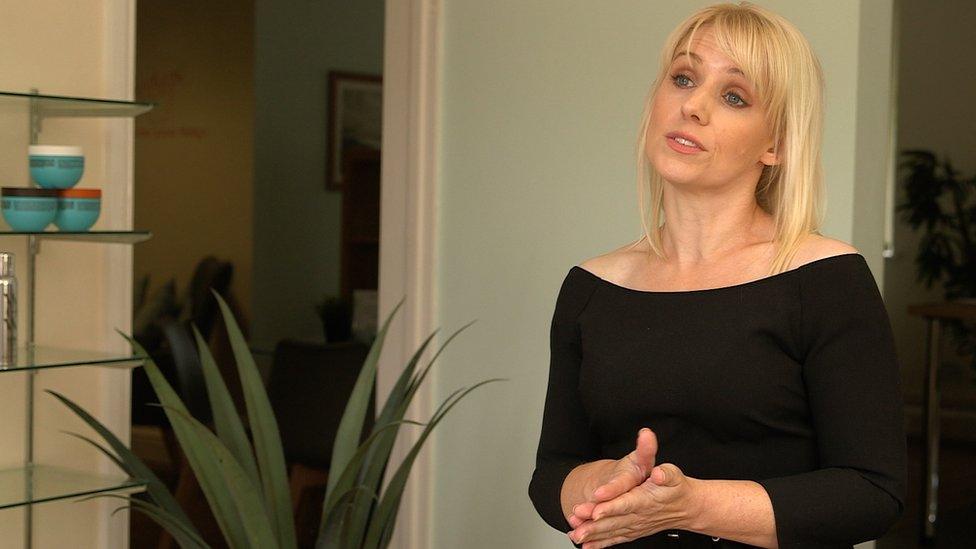
Sarah Bruton said she had learned "not to hope too much"
The managing director of a spa in Caerphilly said she was "really happy" to hear close contact services may reopen in three weeks.
But Sarah Bruton said: "We've been down the road before with Mark Drakeford - we've learnt the hard way not to hope too much.
"I don't think off the back of those statements we can start contacting our clients or preparing our business yet."
But a caravan park owner said he was "buzzing" at the prospect of an Easter reopening.
Ed Williams, of Llansantffraid in Powys, said: "It's the best news we've had all winter."
No 'wholesale' reopening of shops
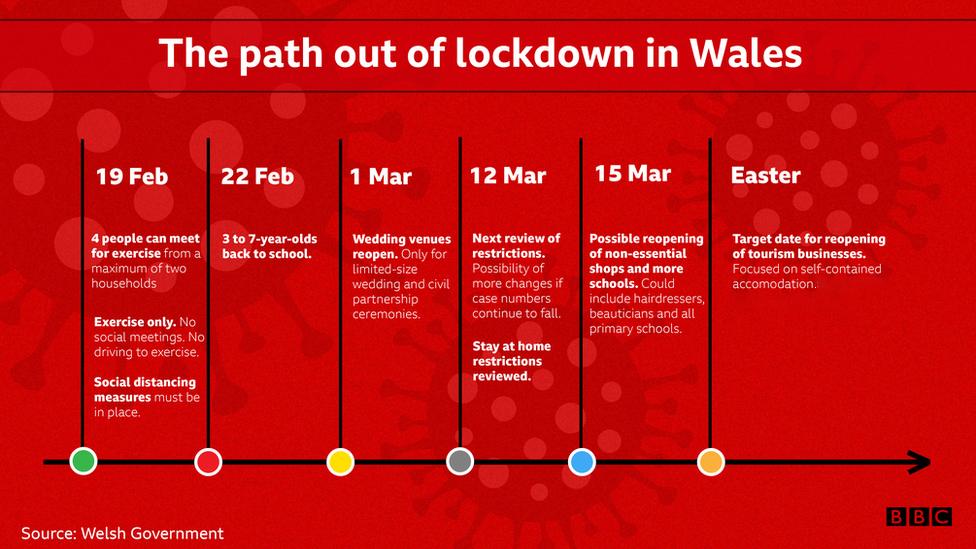

Discussions are taking place over allowing non-essential retailers, such as shops and hairdressers, to reopen by the middle of March.
Mr Drakeford warned there would not be a "wholesale" reopening of shops.
Cardiff University virologist Richard Stanton said he was concerned about the prospect of parts of the retail sector opening in three weeks.
He told BBC Radio 5 Live: "We are seeing the schools reopening fairly soon, we know that is likely to push transmission rates up slightly.
"I think if you add the opening of non-essential retail onto that as well we might see quite significant increases in the rates of virus transmission."
Elsewhere in the UK, Prime Minister Boris Johnson has said England will exit lockdown "cautiously" - a road map for easing restrictions is expected on Monday.
In Northern Ireland lockdown has been extended to 1 April, while in Scotland most lockdown measures are due to remain in place until the end of February.
No plans for pubs or gyms yet
Speaking at the press conference, Mr Drakeford played down any imminent reopening for pubs, restaurants and cafes.
He said they were not likely to see a reopening in the next two review periods over the next six weeks.
He added the hospitality industry did not want a "stop-start" reopening: "They don't want to be able to re-open and then find that, because the virus gets a grip again everything has got to close."
There are no plans to reopen gyms in Wales.
Mr Drakeford said advice from scientists was the Kent variant of coronavirus made doing so "more challenging".
Both gyms and hospitality are listed as being of greater risk to reopen than non-essential retail in a plan for coming out of lockdown, published on Friday, external.
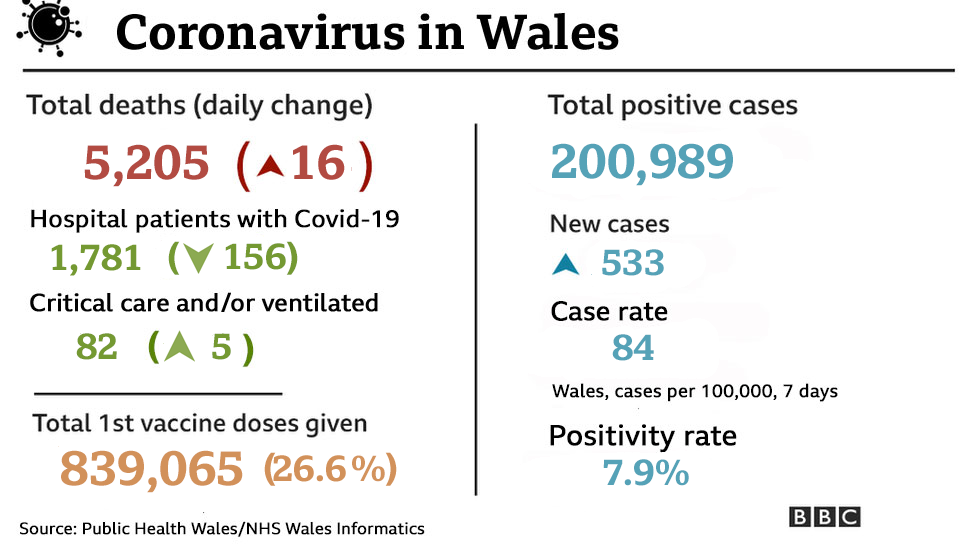
The control plan suggested it was not clear what impact easing restrictions will have with rising concern over variants of the virus.
"The early signs are very promising that the vaccines will reduce transmission, but we need more evidence for this to be clear," the plan said.
Earlier Mr Drakeford said there were examples of a Nigerian variant in Wales, and expressed concerns over versions of the Kent variant found in Bristol and Liverpool.
The Welsh Government said one in three adults in Wales has been vaccinated - latest figures show 839,065 people had been given their first dose in Wales.
The case rate in Wales was one of the highest in the world for a period in December, but it has been falling since the week before Christmas.
It now stands at 84 cases per 100,000 people over seven days.
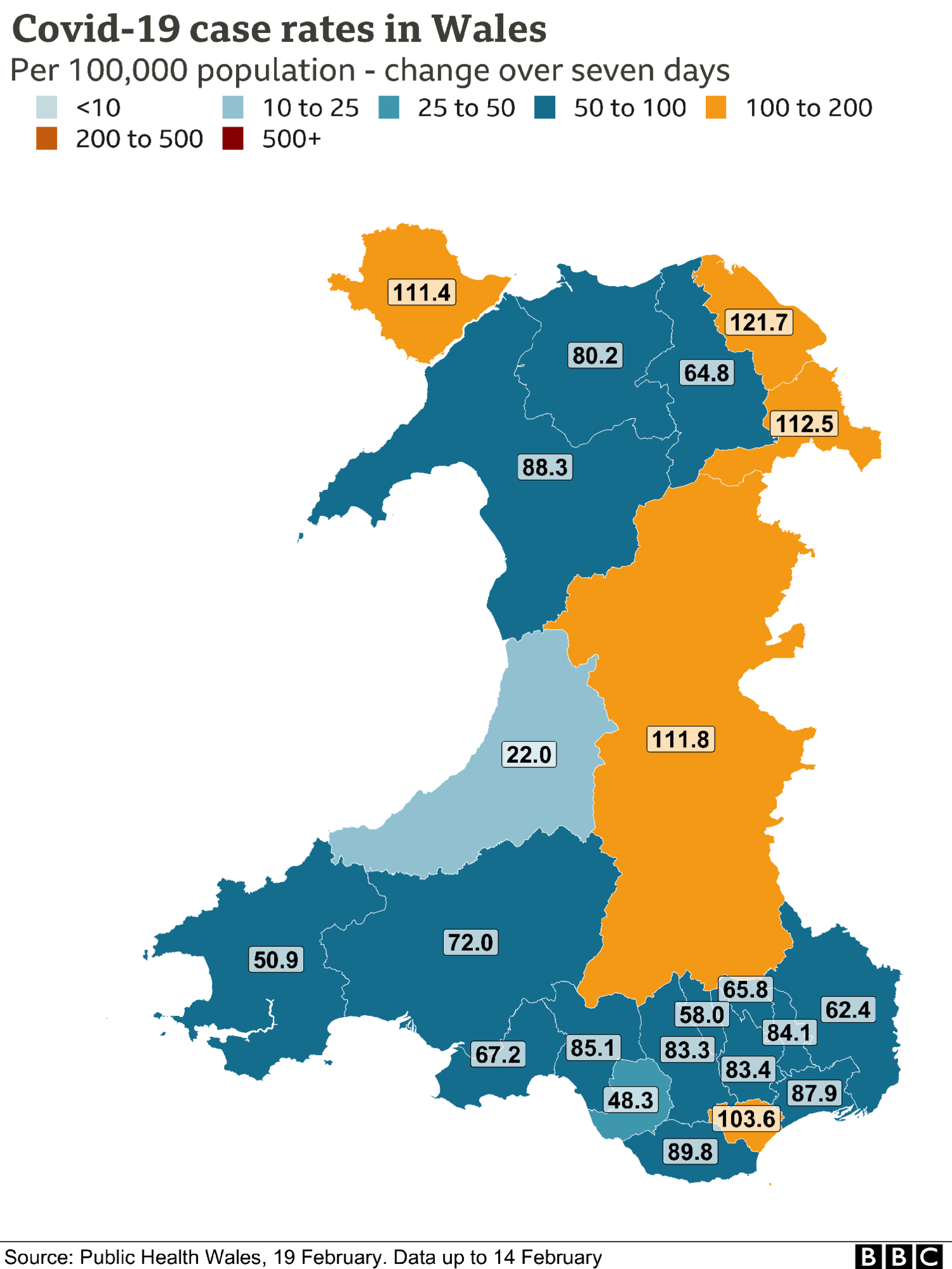

What is the current lockdown picture?
Wales went into lockdown on 20 December, after a rise in cases blamed partly on a new, more infectious variant of the virus.
The rules mean non-essential travel is banned and people are expected to stay home except for work, exercise and other essential reasons.
Pubs and restaurants are closed and non-essential shops are shut.
Speaking to LBC, Mr Drakeford said chief medical officer Frank Atherton had told him he believes a third wave is being "baked into what will happen during this year".
He said he was "not going to say to anybody" that another lockdown would not be needed.

Restrictions on shops are expected to last for at least another three weeks
Opposition reaction
Welsh Conservative Senedd leader Andrew RT Davies welcomed the moves to re-open schools but was concerned that not enough was being done for businesses.
"We know the damage and scarring what's going on the interruption to children and students' educational pathway".
"What I think is regrettable is that the First Minister didn't open up a few more windows of opportunity for businesses to hang their hats on, so they can know when they could be planning to restock shelves and get staff back into work".
"I think that's an opportunity that's been missed".
Allow X content?
This article contains content provided by X. We ask for your permission before anything is loaded, as they may be using cookies and other technologies. You may want to read X’s cookie policy, external and privacy policy, external before accepting. To view this content choose ‘accept and continue’.

Plaid Cymru leader Adam Price said the "direction of travel is an incredibly positive one" but he was still concerned about Covid variants.
"We do have some indication that they have a higher level of transmissibility, and that's what I think is really what is driving the caution, the tone of caution, that we heard today," he said.
"The government's own advisors, as well as the TAC report today, has said relaxing restrictions too early or too quickly will lead to a large number of new cases of hospitalisations and deaths".
"So we have to be careful, because we don't yet know the effect of the new variants that are that are currently dominant in Wales".

THE R NUMBER: What it means and why it matters
SUPPORT BUBBLES: What are they and who can be in yours?
FACE MASKS: When do I need to wear one?
SCHOOLS: When will they reopen?.

Prior to the announcement Abolish the Assembly Party leader Richard Suchorzewski called for Mr Drakeford to make changes on the sale of non-essential items in supermarkets and other essential retailers.
"At the very least, he should allow the people of Wales to have the same rights to purchase what he regards as 'non-essential items' e.g. jumpers, shoes and underwear, as they are allowed to in English supermarkets," he said.
While Welsh shops are expected to close aisles selling goods deemed non-essential "if reasonably practicable", English stores can keep them open.

How has coronavirus affected you? Are you a parent in Wales whose child will be returning to school? Share your experiences by emailing haveyoursay@bbc.co.uk, external.
Please include a contact number if you are willing to speak to a BBC journalist. You can also get in touch in the following ways:
WhatsApp: +44 7756 165803
Tweet: @BBC_HaveYourSay, external
Please read our terms & conditions and privacy policy
If you are reading this page and can't see the form you will need to visit the mobile version of the BBC website to submit your question or comment or you can email us at HaveYourSay@bbc.co.uk, external. Please include your name, age and location with any submission.

- Published30 April 2021
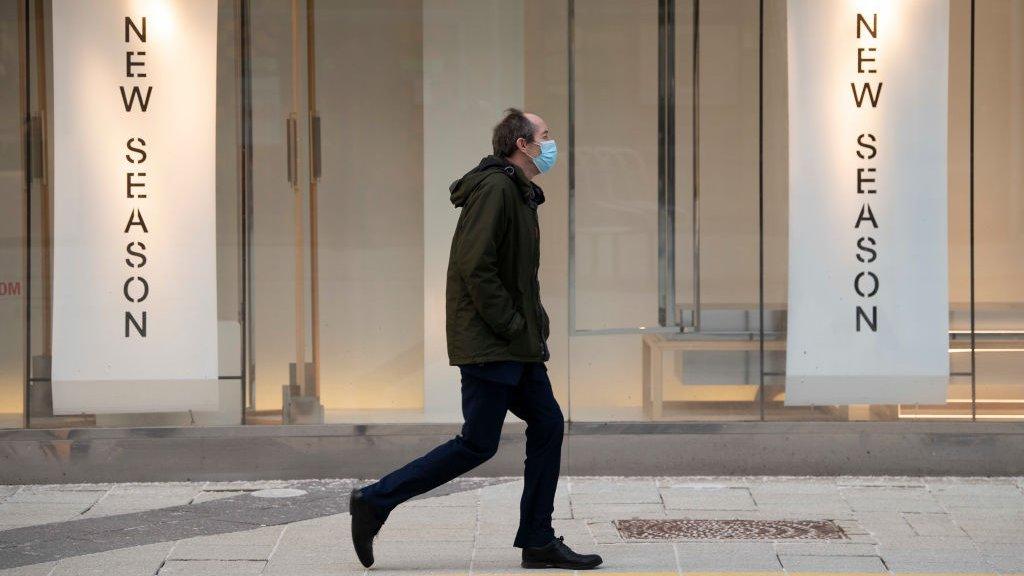
- Published5 February 2021
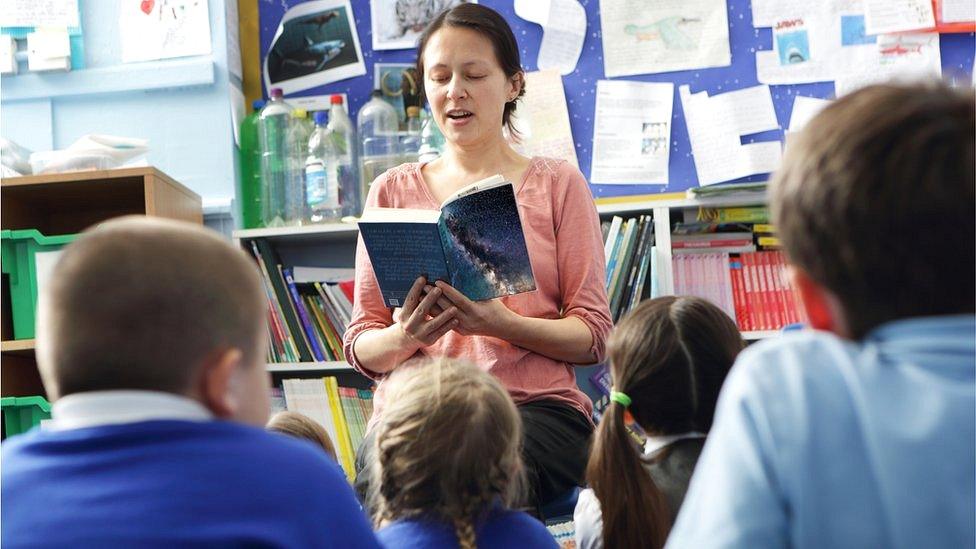
- Published18 February 2021
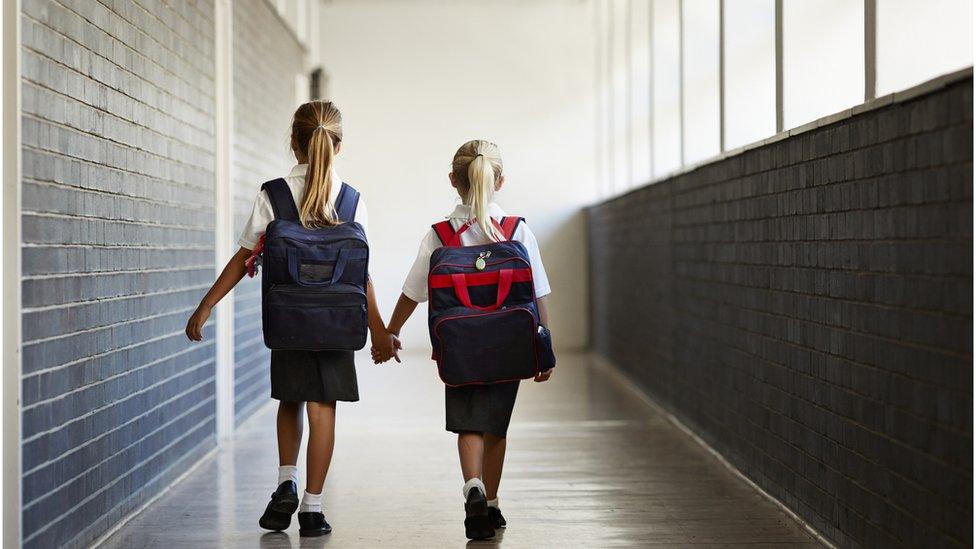
- Published27 May 2022

- Published12 February 2021
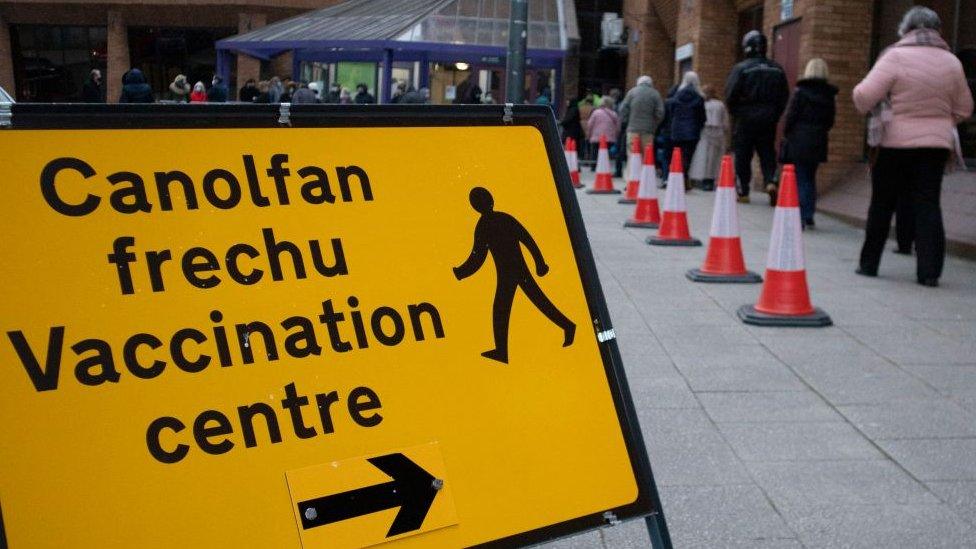
- Published14 February 2021
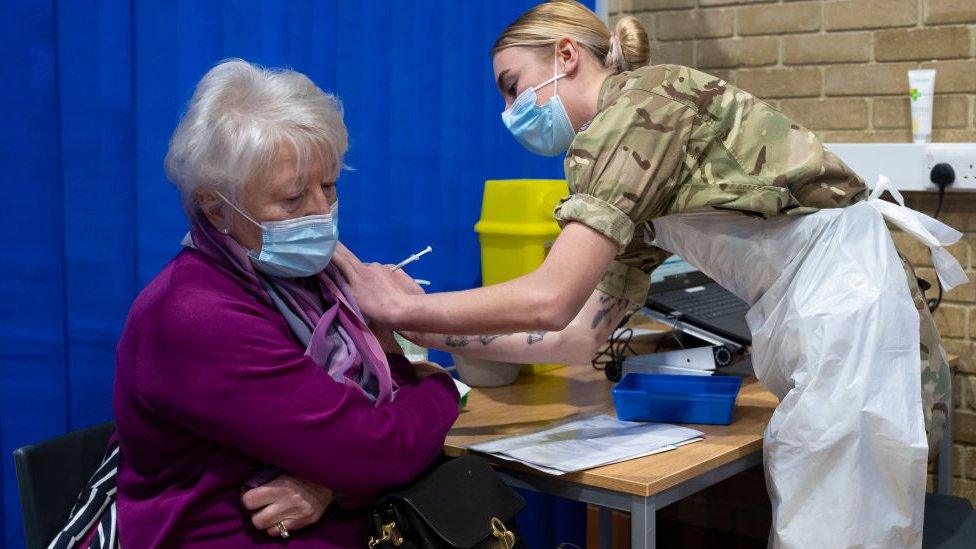
- Published18 February 2021
